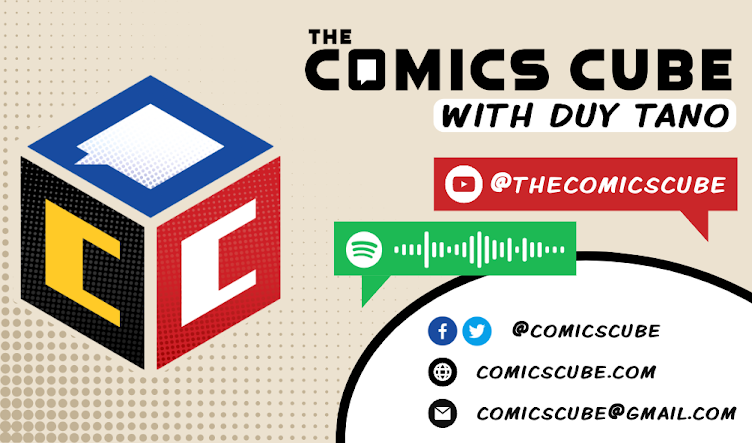Maus is an biographical comic. It tells the story of Art Spiegelman's dad, Vladek, a Holocaust survivor, and weaves in and out of the present and the past. Each chapter starts with Art visiting his father, and then goes into his father recounting his experience in the Holocaust. It's what's called a "frame tale," or a story within a story.
Spiegelman is, in his other works, incredibly experimental, playing with symbols, panels, and other constraints of the comic page to see what the medium can do. But in Maus, he uses exactly one conceit: each race is represented by a different animal (the main one: Jews are mice and Germans are cats). Other than that, the art style is straightforward and even quite crude, and it works perfectly. The diagrammatic, minimal lines really force you to focus on the content, so without further ado, here are, for me, the five most horrific scenes in Art Spiegelman's Maus.
5. Just bodies lying around
There's a scene towards the end of the war where the Jewish prisoners get taken on a train, and then the train just... stops. They start eating snow from the window just to stay hydrated, and if you fell, the prisoners would just step on you.
In the concentration camps, the Nazis wouldn't clear the place of dead bodies, so those who stayed alive just had to walk over corpses.
4. Every man for himself
If that sounded like compassion and empathy were in short supply in the camps, it was. Vladek Spiegelman mentions you'd even have to bribe family members just so they could help you out of a jam. The scene that struck me the most in this regard is this one, in which the camp guards wanted soup transported, knowing full well that a beating awaited any prisoner who would drop the soup and spill it. Spiegelman immediately found the strongest other prisoner he could get his hands on so that they wouldn't spill anything, leaving the weaker prisoners to be paired up with each other. And if they dropped the soup? Too bad.
3. They built their own gas chambers
And yes, the Nazis had the Jewish prisoners working on building the gas chambers that would be used to kill them.
It seems difficult to believe, as we're raised on a diet of fiction in which the underdog can overcome, but Vladek explains to Art, amidst Art's utter confusion, that there were many reasons the Jews didn't fight back:
- There was a general state of disbelief at everything that was happening, and the Jews were too beaten and tired to fight.
- The Jews lived in hope that someone would come to save them.
- The Nazis had the weapons, so whether you fought them or not, you end up dead regardless.
I can't imagine living under such conditions. And neither should anyone reading this in 2019 be able to.
2. The callous killing of children
"Some kids were screaming and screaming, and they couldn't stop. So the Germans swinged them by the legs against a wall... and they never anymore screamed."
Jews were dehumanized so much that the callous murder of a child was not uncommon. And, horrifically, they were beaten down so much that the governess of Vladek's first child, thought it was okay to kill them, because at least this way they wouldn't be killed by Nazis.
Dehumanization and oppression bring out the worst in everyone, and this should not ever be a thing humanity should have to return to.
1. These three scenes in the present day
After a long day of hearing his dad talk about the Holocaust, Art Spiegelman finds out that his dad threw out his coat. He becomes fixated on this.
After hearing about the horrors his dad went through, all he can focus on is how his coat is gone.
I am not judging. I would react exactly the same way. But it does make me think about whether or not that reaction is appropriate in that context.
Worse, when Art and his wife, legendary comix editor Francoise Mouly, pick up a black hitchhiker, Vladek reveals himself to be a flat-out racist.

Francoise snaps, "How can you, of all people, be such a racist! You talk about blacks the way the Nazis talked about the Jews!", to which Vladek responds with "I thought really you are more smart than this, Francoise. It's not even to compare the shvartsers and the Jews!"
Despite everything that's happened to him as a result of bigotry and prejudice, Vladek gives in to the same thoughts, perhaps not to the same degree that he's calling for their deaths, but certainly in the same vein in that he wants nothing to do with them.
And that's scary. If someone who lived through something like the Holocaust still harbors basic prejudices, what hope does the rest of humanity have?
The third scene takes place when Art is talking to his therapist, also a Holocaust survivor.

"...Look at how many books have already been written about the Holocaust. What's the point? People haven't changed... maybe they need a newer, bigger Holocaust."
I dunno about you guys, but that disturbs me. And it's scary. And compared to when I first read this book in 2002, it feels all the more resonant.
Maus is a groundbreaking book and I would recommend that you all read it, because we should all be able to learn from history.
If only it were so.







